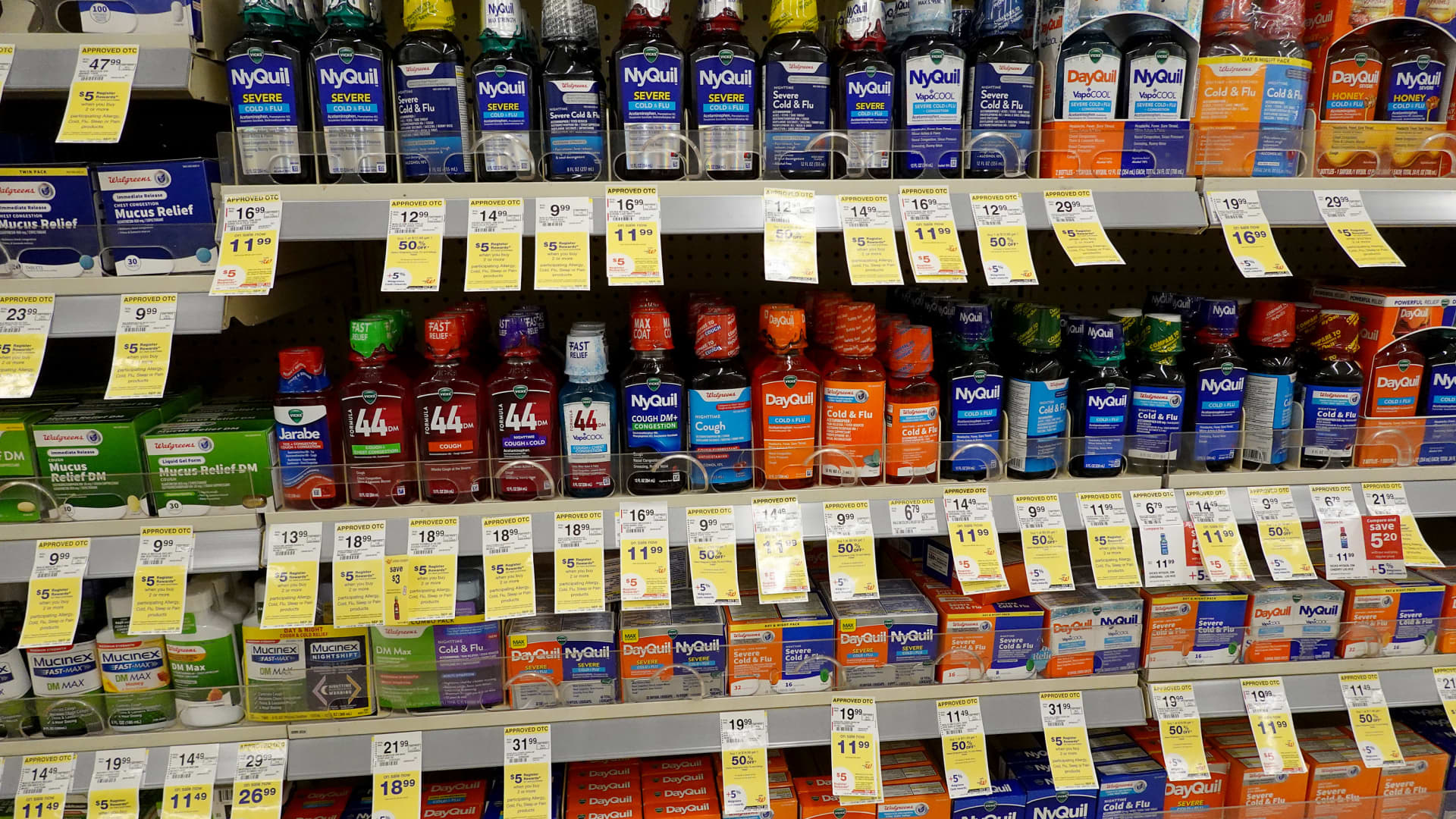
Cold and flu medicine including NyQuil sit on a store shelf in Miami on Sept. 12, 2023.
Joe Raedle | Getty Images
CVS is removing some of the most common cough and cold medicines from its store shelves and will no longer sell them, a company spokesperson told CNBC on Thursday.
The company’s decision comes a month after a panel of advisors to the Food and Drug Administration unanimously determined that the main ingredient used in many popular over-the-counter cold and allergy medications doesn’t actually work to clear up congested noses when taken orally.
The FDA has not decided whether to ask drug manufacturers and retailers such as CVS to remove products containing oral phenylephrine — a nasal decongestant found in versions of drugs such as NyQuil, Benadryl, Sudafed and Mucinex — from the market.
However, CVS is voluntarily removing certain cough and cold medicines that contain phenylephrine as the only active ingredient from stores.
CVS is aware of the determination made by the FDA advisors and will follow directions from the agency to ensure that products sold at the company’s stores comply with laws and regulations, the spokesperson said. They added that CVS stores will continue to offer other oral cough and cold products to meet patient needs.
Oral products that list phenylephrine as its only active ingredient include Sudafed PE, which is marketed by Johnson & Johnson’s consumer health spinoff Kenvue. Kenvue did not immediately respond to CNBC’s request for comment about CVS’s decision.
The Wall Street Journal first reported on CVS’ decision Thursday.
Pulling oral phenylephrine from the market entirely could affect CVS and other retail pharmacy chains, which rake in revenue from selling over-the-counter cold and allergy pills.
Retail stores in the U.S. sold 242 million bottles of drugs containing phenylephrine last year, up 30% from 2021, according to data compiled by FDA staff. Those bottles generated $1.8 billion in sales last year, the data said.
Without oral phenylephrine, patients will also likely be forced to seek out liquid and spray versions of the drugs or entirely new medications, which were not included in the review by the FDA advisors.
Don’t miss these CNBC PRO stories:







